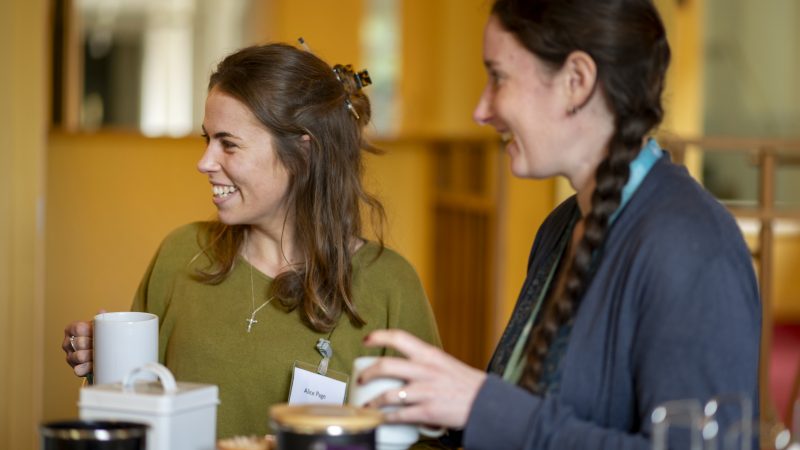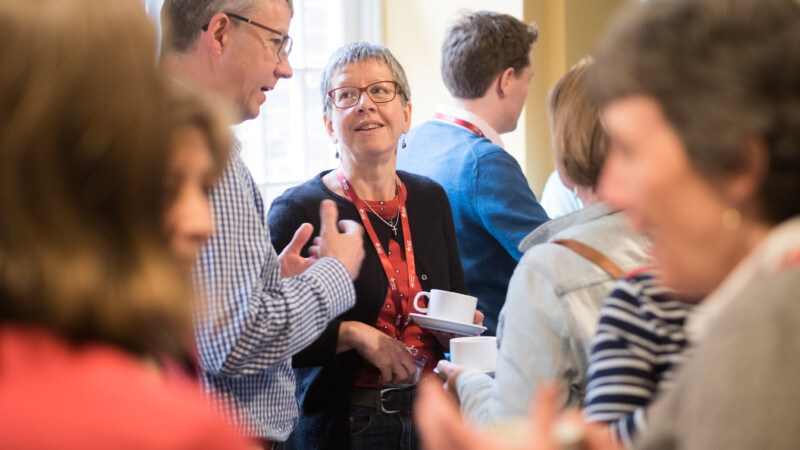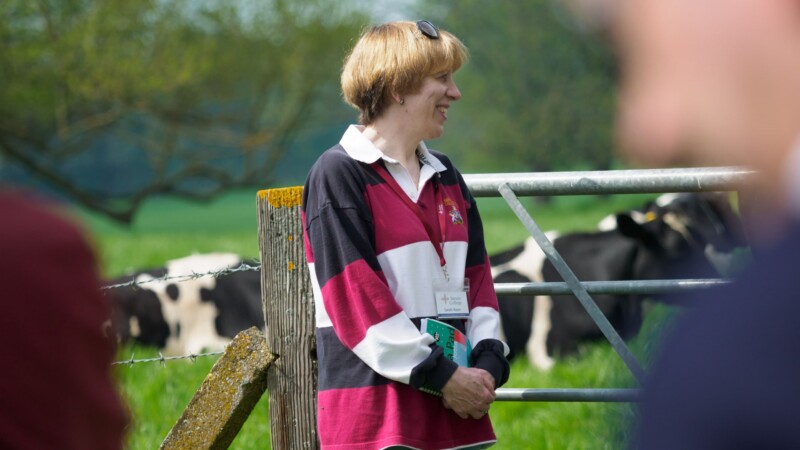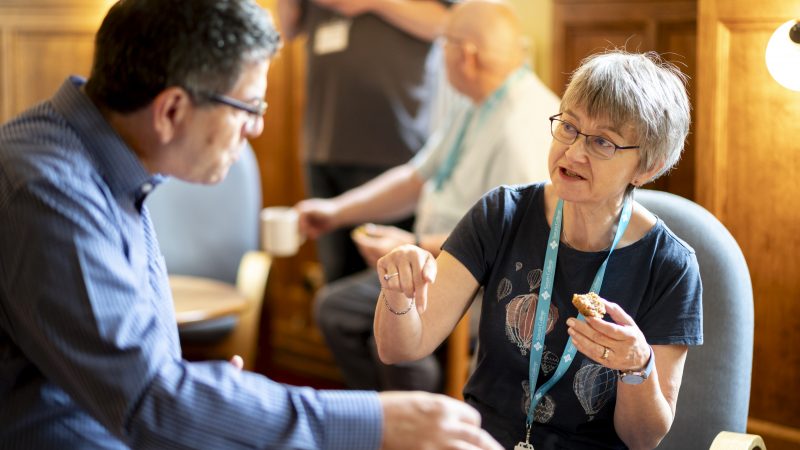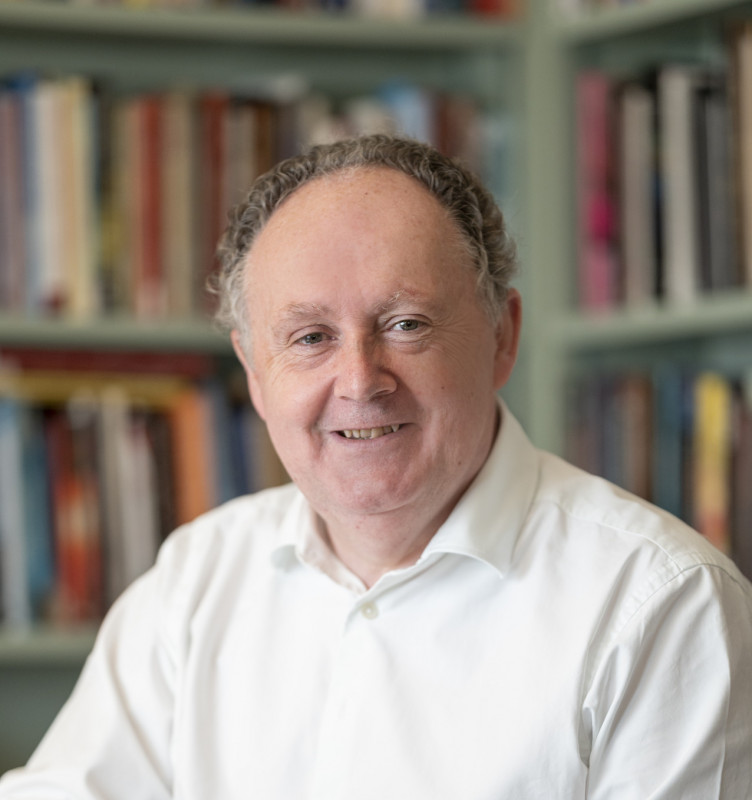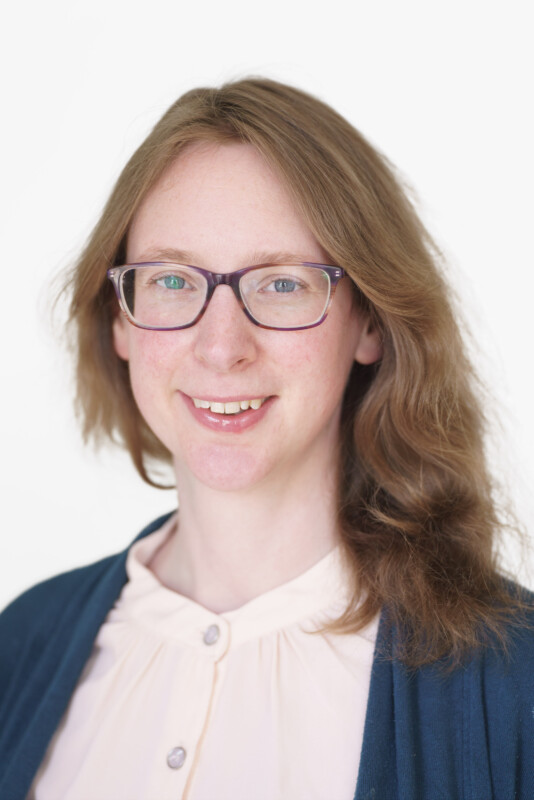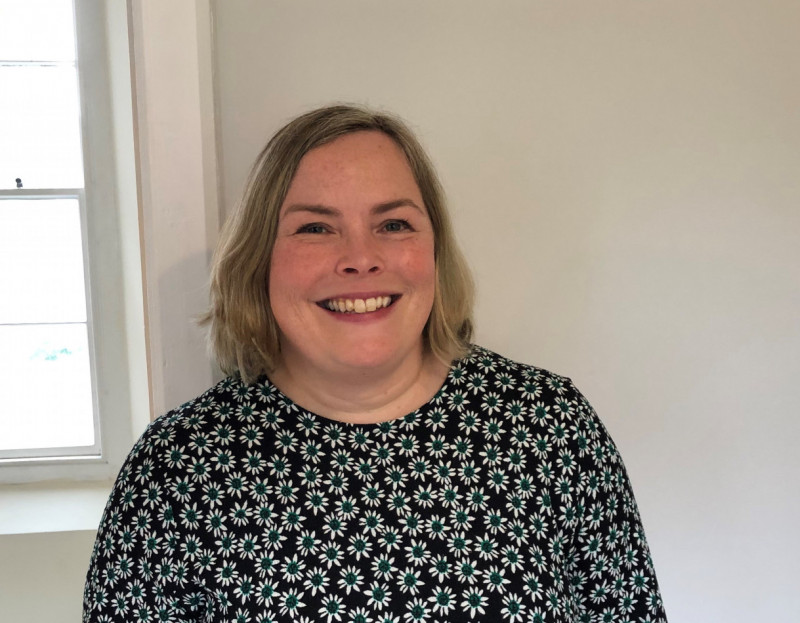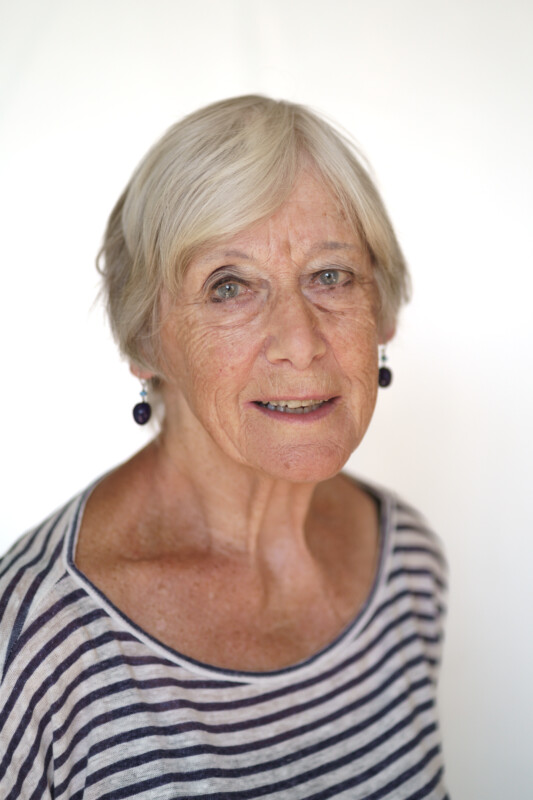- Courses
- Ministry Formation
- Stay, Meet & Eat
- Events Diary
- Join the mailing list
- Courses
- Ministry Formation
- Stay, Meet & Eat
- Events Diary
- Join the mailing list

Ordained Ministry Formation and Training
Join us
for flexible learning in a dynamic, supportive community with an integrated approach to formation to become effective in mission, ministry and leadership for the church of today and the future.
Sarum’s teaching team brings diverse ordained and lay leadership experience as well as a wealth of published research.
Students on different ordination pathways learn together and alongside those training for Reader/Licensed Lay Ministry.
Sarum College has a strong ecumenical heritage. Students from any denomination or country are welcome although the majority of our ministry students come from dioceses across the Church of England.
I really value the time I spent working with my training church. It has been an opportunity to link everything I am learning at College with the practical reality of church life.
I meet my training supervisor roughly once a month to reflect both on what I’ve been reading but also what I have been seeing, feeling and experiencing while working with the church.
This context-based learning has given me a wealth of opportunity to experience different aspects of ministry so I feel that I’m about to start my curacy with a greater level of confidence.
Katie Jackson (two-year full-time diploma)
Ordained ministry pathways
-
 Photo by Ash Mills
Photo by Ash Mills -

-
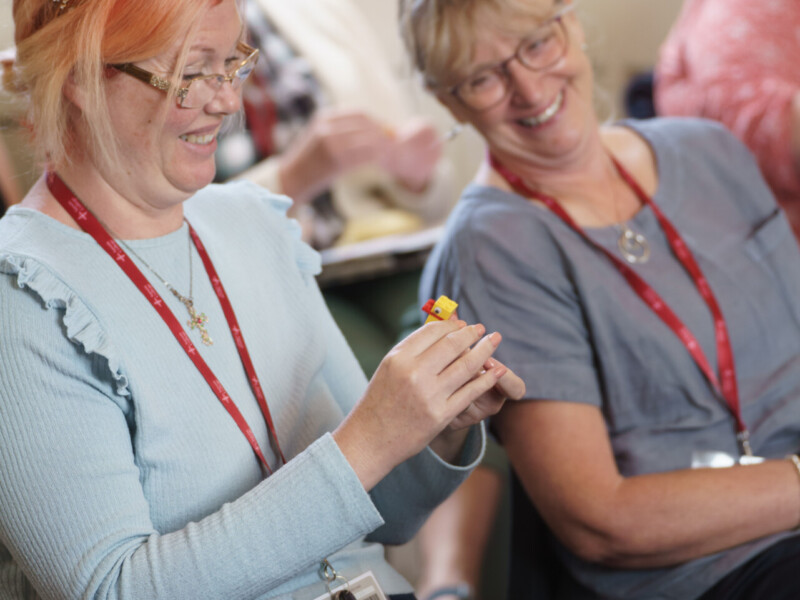
-

-
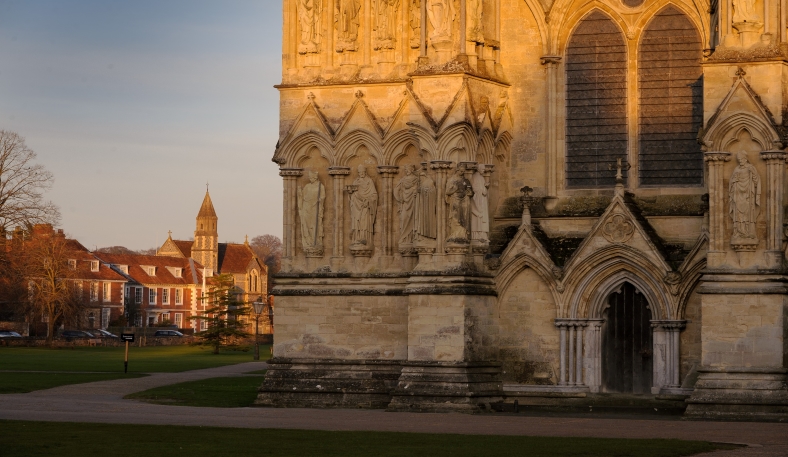
-
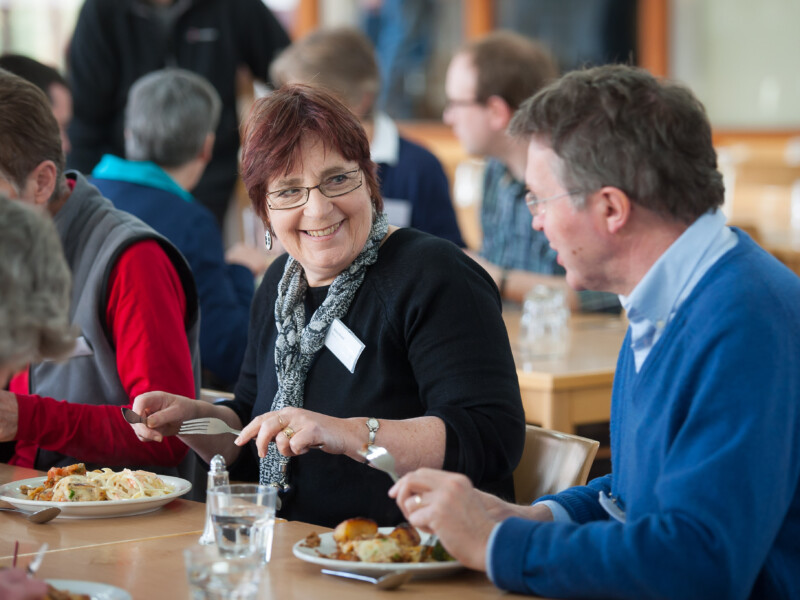
Find out more
How are students accepted on the programme?
We are very happy to receive enquiries about ordination training or about studying on an independent basis — we can advise you on suitable ways of exploring further. Ordination candidates will usually contact us before or as soon as they are given a date for their Stage 2 Panel, and we welcome contact before you have attended that panel. That gives you time for further discussion and reflection in coming to a decision about where you should train.
The best way to get to know us is to visit, so we ask you to contact us to arrange that. We ask you to complete an application form and will arrange for you to visit college. We try where possible to arrange this visit during a residential weekend, but it may be at another time convenient to you. You will meet for an informal interview with the Principal, and also with another member of staff who will discuss with you which pathway will best suit your circumstances and resource you for ministry.
The right pathway for you
What course you take depends on any prior theological learning you may have, the type of ministry you are training for, and the time you have for training. This is discussed with you, and the sponsoring church where appropriate.
You will cover Bible, Preaching, Doctrine, Church History, Mission, Worship and Pastoral/Leadership subjects, together with practical experience and development in theological reflection.
Ordained Ministry pathways:
- Undergraduate pathways over two or three years for those learning theology for the first time
- Postgraduate pathways over 2 or 3 years for those with prior theological learning
- Specialist pathway in rural ministry
- Parish-based Ordained pioneer ministry
These pathways are validated through Common Awards at Durham University.
Learning at college, at church and at home
You are supported in your training through our blended learning pattern. This approach offers a mix of online, in-person and practical application learning.
In community – Residential Learning
Ordained ministry students learn alongside those on the Reader/LLM pathway. This includes an overnight stay during the residential weekend to share the rich diversity of traditions and enjoy food and fellowship. The learning community formed during residential weekends is supported through online forums and social media. All staff and the Chaplain are available for support and questions.
The residential weekends build on the module material in discussion and teaching to support your learning. We also build on formational learning in practical aspects of ministry and self-care, group work, and ongoing theological reflection.
Through experience – Learning in Context
Your learning throughout the course is grounded in practice. Your main context is usually (but not always) your home church. We set up a Training Supervisor for you, often the incumbent or pastor of your main context, who will meet regularly with you help relate your training to practice.
You explore mission and ministry in a different setting through a placement module. This is arranged to accommodate work and family responsibilities. Recent placements include prison and hospital chaplaincies, trips abroad, fresh expressions and other church settings. A residential weekend on rural ministry themes contributes further engagement with different contexts and forms part of the learning in community.
In depth – Personal Learning
Our online modules enable you to pursue your personal study at a time and place to suit you. These modules also incorporate practical and reflective activities and assignments. This guided study contains a wealth of material, including reading activities, reflection and multimedia.
Online group tutorials with the module leader are delivered via Zoom so that you may attend tutorials wherever you are. You also apply what you learn by leading a regular ‘Local Learning Group’ of people, chosen by you, who come from your home context. These groups allow you to share learning with others who wish to support you.
Time required
We work on an academic year that runs from an initial Induction Sunday in August, a week-long summer school for ordinands, followed by studies from September to mid-July. Final year students finish at the beginning of June. The work is paced through the year, and there is a fortnight break at Christmas and Easter in addition to the summer break. Staff support helps to manage emergencies such as sickness.
You will need to have somewhere quiet for study on a regular basis. You will also need a reasonable broadband connection and computer set-up that will allow you to use Zoom for tutorials.
Part-time training
You will need to allow approximately 16 hours a week for study, to attend 6 residential weekends a year and for ordinands the annual residential week in August. In the first year you will have two extra Saturdays to attend, for induction and for safe-guarding training.
16 hours is an honest average that includes involvement in church on Sundays and other formational experience, together with the work required for study, tutorials and supervisions. You will need to drop other existing responsibilities in church to make space for this. This is a significant commitment, especially for those in full time jobs, but it is manageable and worthwhile.
Full-time 'context based' training
The Church of England Ministry Development Team asks that you work an average of 40 hours per week for 45 weeks of the year. In this you work one day a week (voluntary) in your parish as ministry experience in addition to Sundays. You attend 8 residential weekends a year and the annual residential week in August. In the first year you will have two extra Saturdays to attend, for induction and for safeguarding training.
You will need to give 24 hours a week to study, tutorials and supervisions. Full-time context-based training is a full time commitment, but it is manageable and worthwhile.
Fees
For Church of England Candidates
For Church of England ordinands, your tuition fees will be paid for you by your diocese, as are your travelling expenses to and from Sarum College. If you are training for Licensed Lay Ministry in a sending Diocese, similarly your tuition fees are met by the Diocese. If you are a full-time contextual pathway student, you should discuss other financial implications such as maintenance grants with your Diocese. It is worth noting that if you wish to stay in College at times outside the residential periods of your course, for instance to give yourself an intensive study period, then this is possible at normal College B&B rates.
For DDOs
The Sarum College pathways are charged at the level anticipated by Ministry Development Team as the tuition costs per year for that pathway in the annual RME Handbook. Our Full-Time Contextual Pathways are charged at the Ministry Development Team tuition costs for a Full Time Non-residential Pathway per year. Our Part-Time Pathways are charged at the Ministry Development Team tuition costs for a Regional Pathway per year. Travel expenses are kept to a minimum by using online seminars for teaching and tutorials between residential weekends at College. If you have further questions on pathways and finances we will be happy to discuss these with you.
For those from denominations other than the Church of England
Fees may differ according to requirements, so please contact us to discuss.
Schedule a visit
Sign up to our newsletter
Fill in and submit the form below and we'll add you to our mailing list for news about Sarum College.
"*" indicates required fields
